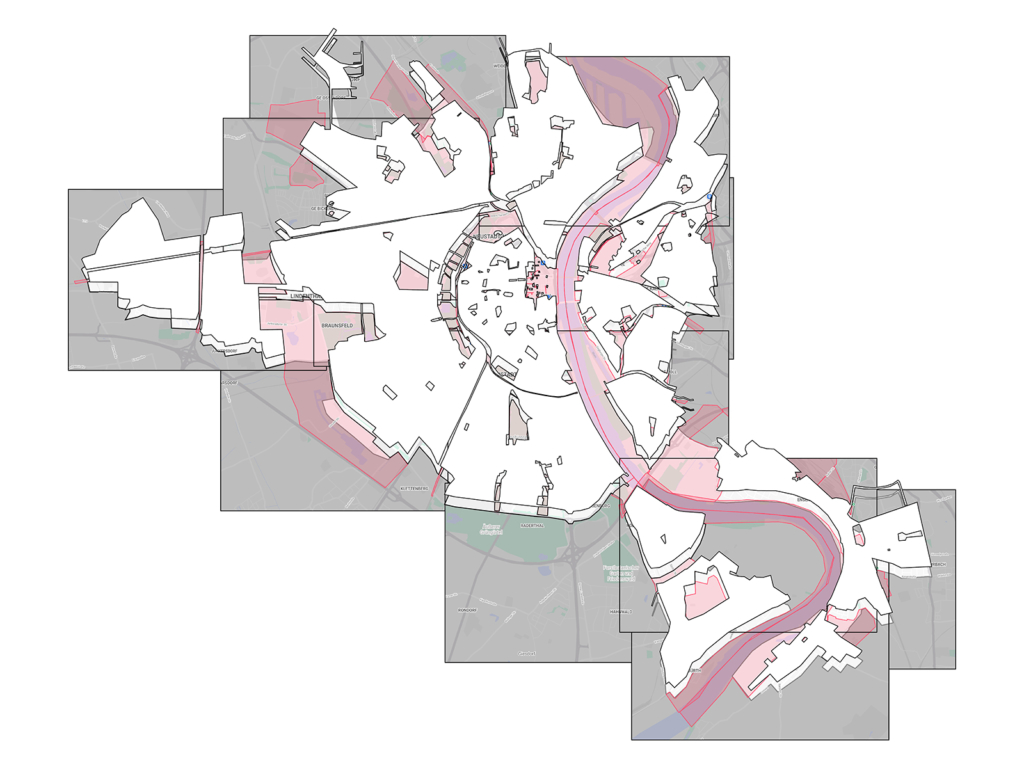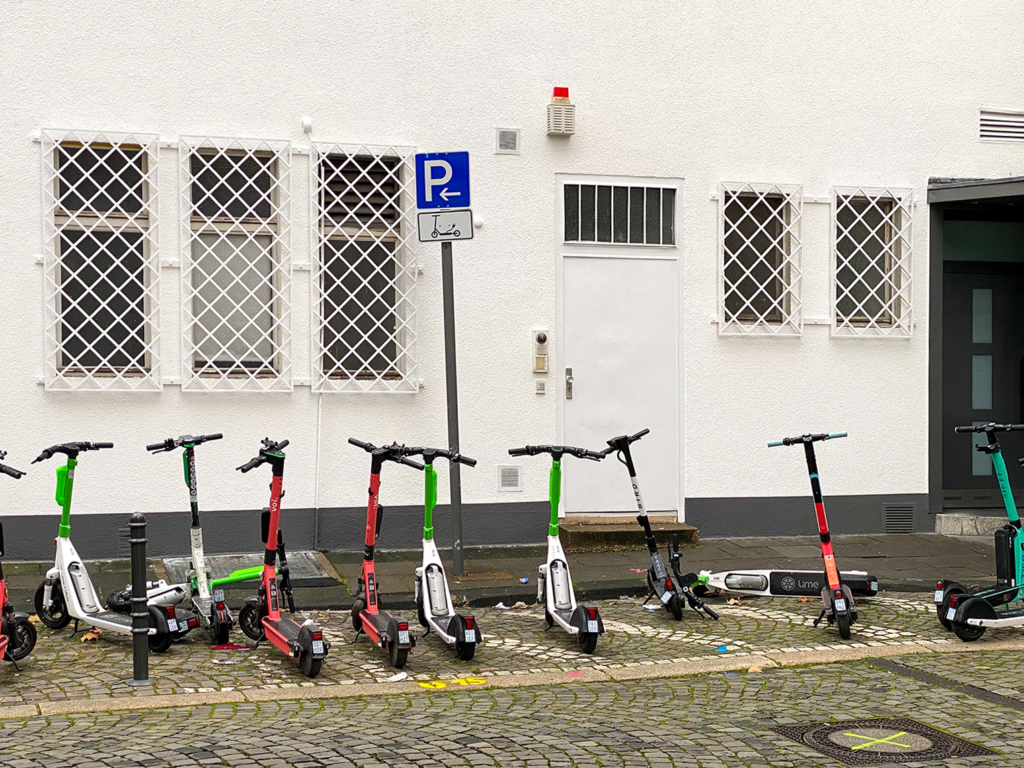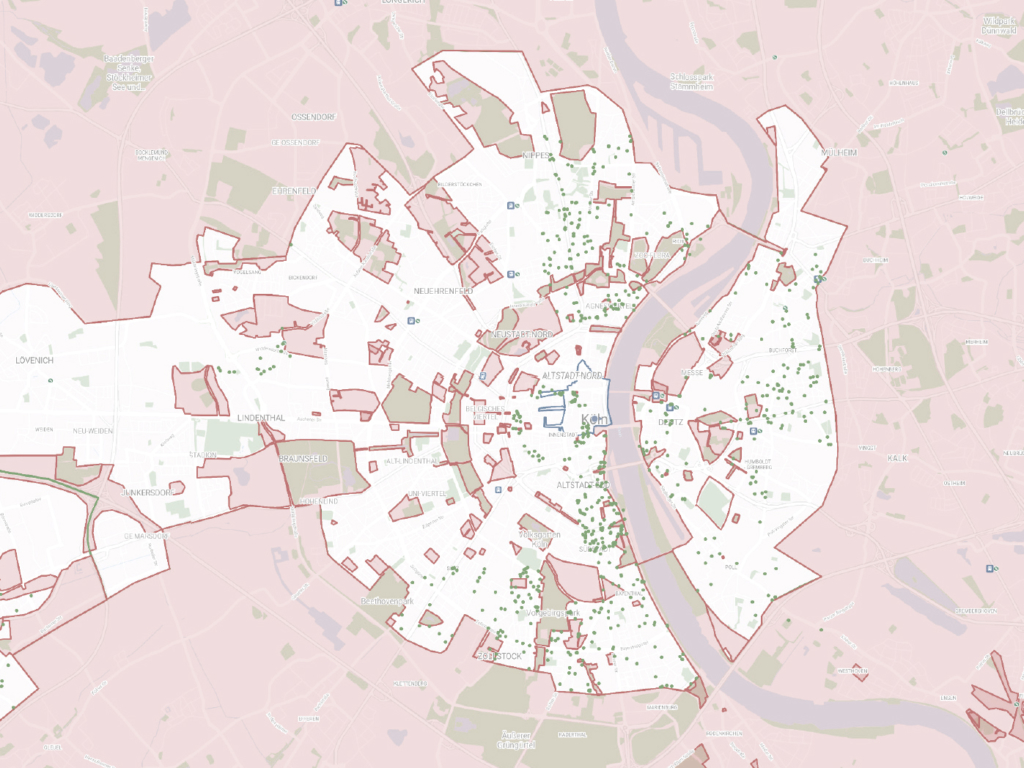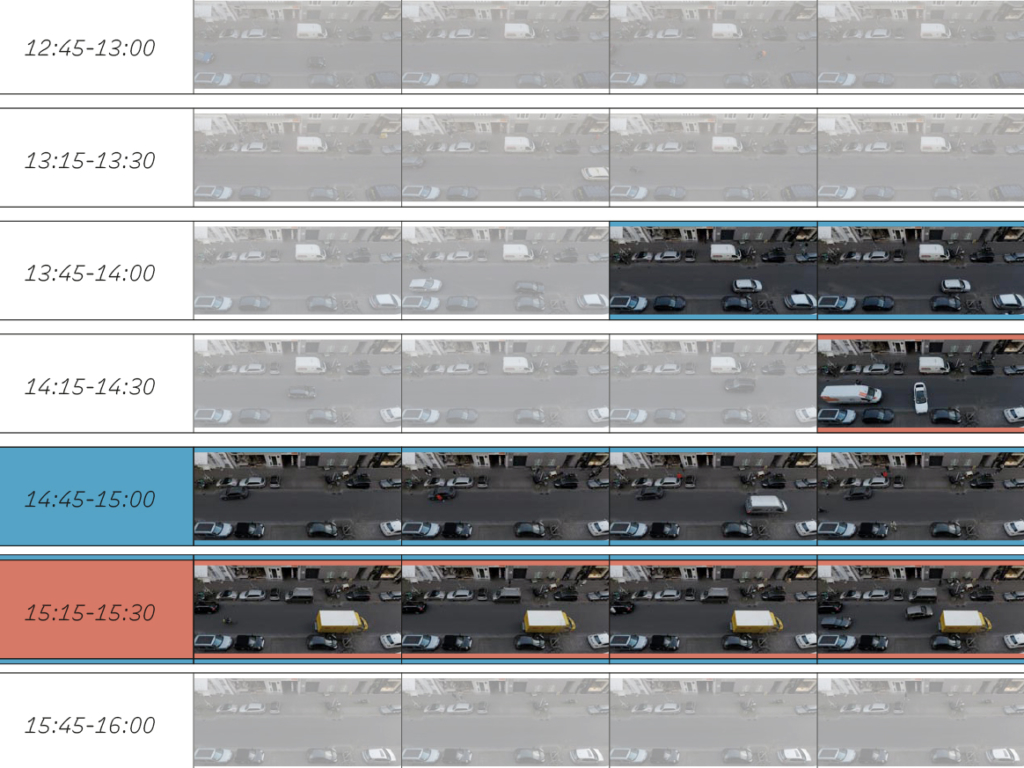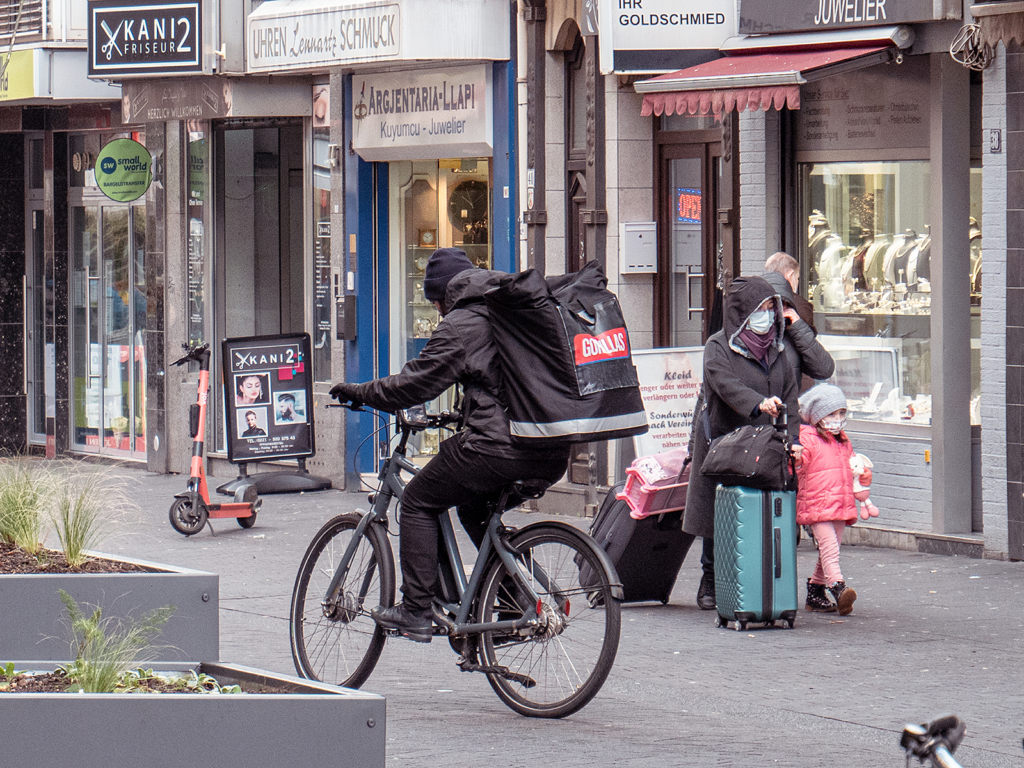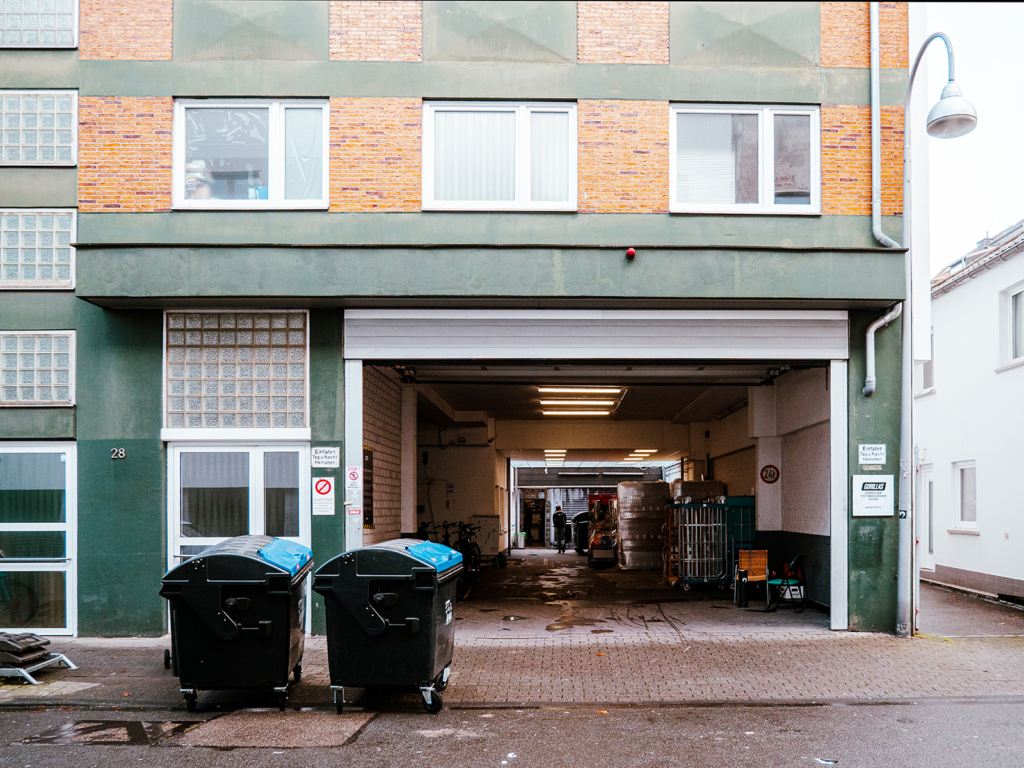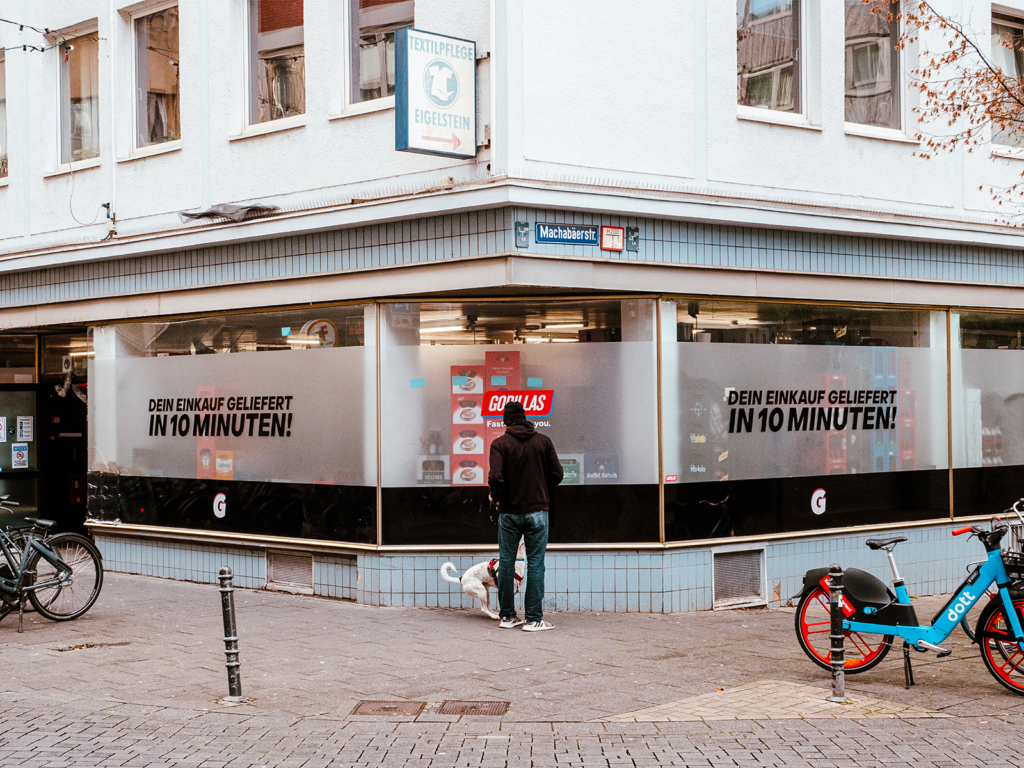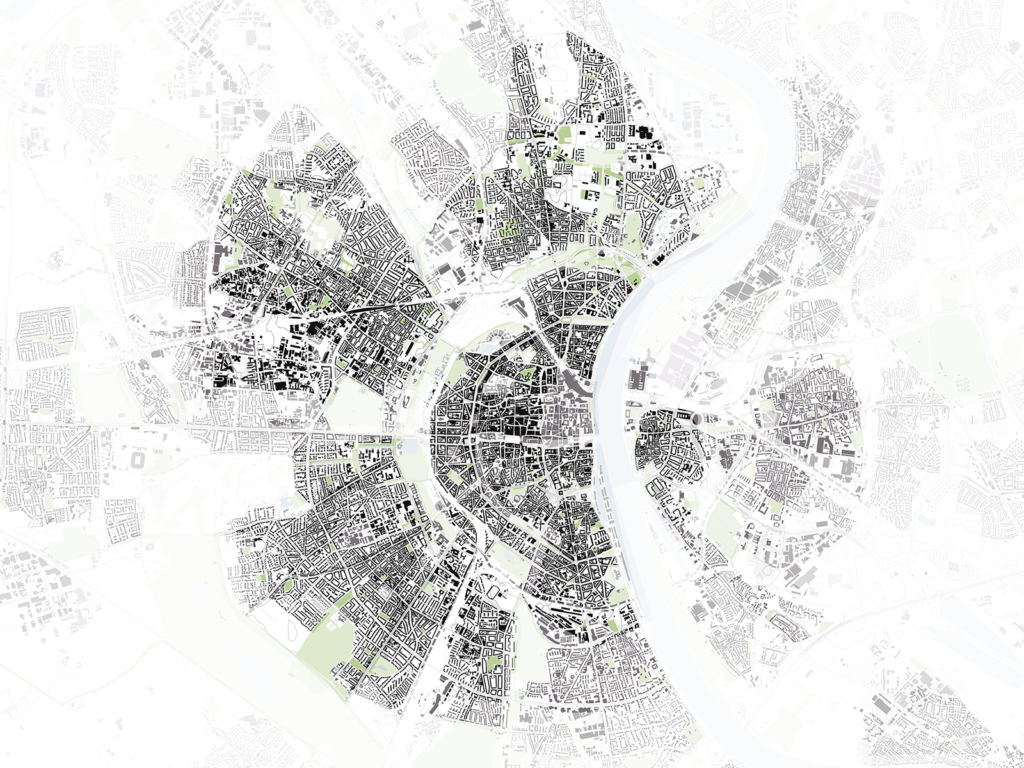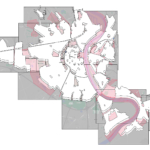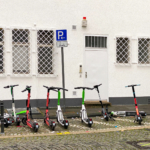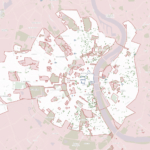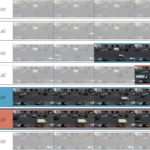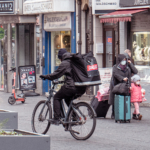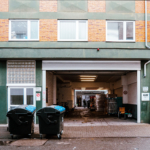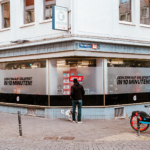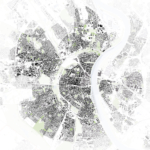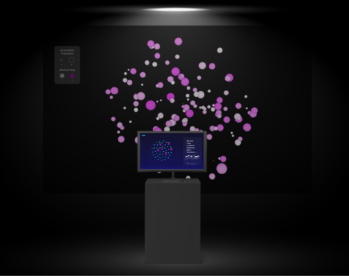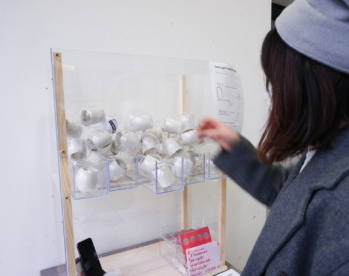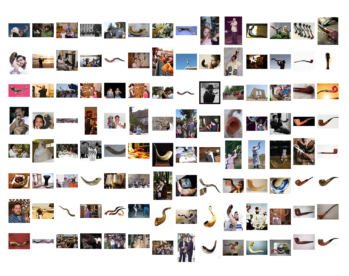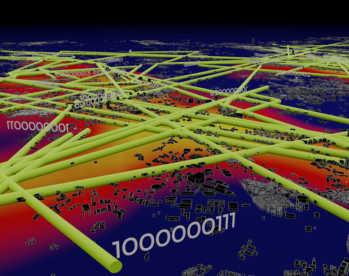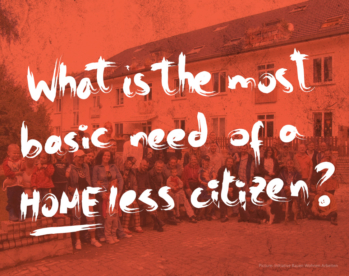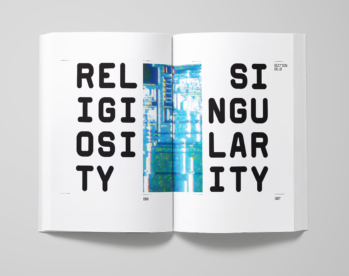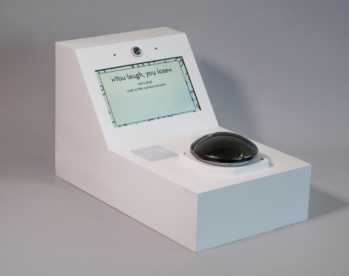In her Master's thesis, Juliane Ahn examines how on-demand service companies are profoundly changing urban space. Based on design ethnographic analyses, she looks at new forms of algorithmic organisation, control and surveillance of work and mobility and points to precarious living and working conditions of solo self-employed workers of digital platforms. Based on this, she sketches the outlines of an emerging »city on demand«.
The increasing digitalization of the city and society is leading to fundamental changes in urban space. More and more on-demand service companies are operating in both the physical environment and the virtual sphere of the city, changing the way urban space is perceived, used and developed. The ever-increasing demand and availability of goods and services in any place and at any time determine who works in the city and how work is done, who moves through public space and in what way and which areas are accessible and to whom.
Using mapping techniques and (photo-)graphic analyses, Juliane Ahn explores how on-demand service companies appropriate urban space, how they influence it physically and virtually, and how they thereby change the perception and constitution of the city. In her work, she shows that on-demand service providers make urban space an integral part of their own corporate infrastructure, and that the experience of urban realities increasingly depends on the use of digital on-demand offerings.
Accessibility to on-demand services and offerings are limited. Only those who have the necessary hardware and software as well as sufficient financial means can make use of e-scooters or delivery services. At the same time, companies are making great use of public space and transforming it into an exclusive delivery and distribution zone. Public space is transformed into a value-creation platform and, from the service companies’ point of view, exists only as a function of the time it takes to travel through it.
The work finally culminates in the question of resistant practices against the increasing on-demandisation of the city and explores possibilities of a participatory and common good-oriented service policy for the city.
Images: Juliane Ahn | www.juliahn.de


